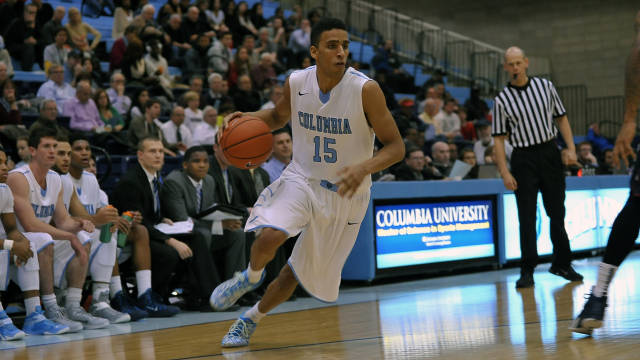
And now they’re hoping to pull a similar upset on Wednesday night when they face No. 1 Kentucky at Rupp Arena (7 p.m., ESPN2).
“Absolutely, we preach it all the time, that the differences aren’t as great as you may believe if you read the papers or watch ESPN,” Smith told SNY.tv. “You may think it’s insurmountable but in the right circumstances, we’ve got a veteran group and a good coach like [NJIT’s] Jim Engles, good things can happen. But obviously we’ve got a formidable task on Wednesday and it’s going to be tough.”
The Lions (5-2) are 4-11 all-time against teams currently in the Southeastern Conference, and haven’t beaten an SEC team since taking out Auburn during the 1957-58 campaign.
Still, the Ivy League school has some experience facing big-time opponents.
In November 2012, Columbia beat Villanova by 18 points at The Pavilion.
A year ago, Columbia put a scare into then-No. 2 Michigan State, taking the first half before ultimately losing, 62-53, in East Lansing.
Smith hopes that experience will give his team some confidence for the Kentucky game.
“We played Michigan State last year,” Smith said. “They were No. 2 in the country and they had to beat us to get to No. 1 because they had just beaten Kentucky so I gotta think that helps, just having our guys play in that venue. There’s no doubt that that should help but we’ll see. But they’e a unique team in that they block nine shots a game and they play two centers and a power forward on the floor at all times.”
Columbia has some size, but really who can compare with what Kentucky presents up front?
“We’re big,” Smith said. “We’ll start 6-11 [Cory Osetkowski], 6-8 [Chris McComber], 6-4 [Kyle Castlin] on our front line and then our guards go 6-3 [Maodo Lo], 6-4 [Isaac Cohen], so we’re pretty big. And then we got 6-10, 6-8 coming off the bench and then we got a 6-3 guy, so we’re decent size it’s they have waves of them.”
Everyone seems to agree that any formula for success against Kentucky includes slowing the tempo of the game down, playing a variety of defenses and, perhaps above all, making shots from the perimeter.
Columbia ranks tied for 242nd nationally in 3-point shooting at 31.7 percent. Opponents, meantime, are shooting 24.4 percent from 3 and 27.9 percent from the field against Kentucky.
“Luckily for us, I won’t have to tell our guys to play slow because we already do play slow,” Smith said. “We’re pretty big and we’re not super quick, and we don’t really play with a traditional point guard, so our pace is slow because of the way we guard. We probably play with a little more zip on the offensive end, but we still work to get good shots. I think that’s how you play on the road in general. If you’re going to compete with better talent, you better have ways to do it, a change of pace and stuff. That’s what we did against Michigan State and that’s kind of the way we play every day.”
Columbia just routed Bucknell, 62-39, on Saturday and Bucknell coach Dave Paulsen said this about the Lions’ chances against Kentucky.
“Columbia is a good team,” he said. “They are very well coached and [junior guard] Maodo Lo is terrific. The teams that have played Kentucky the best have slowed tempo and Columbia is excellent at that. With that being said, I’m not sure if they can withstand the length and athleticism of UK.”
After his team beat Villanova two years ago, Smith received about 10 texts of congratulations, but because the game was on ESPN3, he wasn’t sure how many people saw it.
The Michigan State game was on the Big Ten Network and Smith got about 100 texts after that one.
When he got the opportunity to play Kentucky on ESPN2, he jumped at the chance.
“It will be a chance to promote our program and play on ESPN2, that’s a great experience for our guys,” Smith said.
If Columbia somehow pulls the NJIT-style upset, Smith joked he might just retire on the spot.
“I’ll jump right to the [broadcast] booth,” he said.
***
Smith said he’s known Kentucky coach John Calipari for 20 years since they met at a coaching clinic in Los Angeles.
“I was a young assistant chauffeuring him around L.A.,” Smith said of his time at San Diego.
Smith remembers asking Cal for advice.
“What does it take to be a head coach? Smith asked.
Replied Calipari: “A great job is one where you can win the league every year, and a good job is one you can get.”
“It was pretty funny,” Smith said.





